- Reference Number: HEY-814/2020
- Departments: Easy Read, Trustwide - Adult
- Last Updated: 30 November 2020

 |
This factsheet is about making sure people are safe in hospital and get the medical care they need. |
You can usually make choices about your medical care when you are in hospital.A law called the Mental Capacity Act gives you this right. |
 |
|
Hospital staff sometimes need to stop people making a choice that would harm them. Hospital staff must follow the law if they need to stop people making a choice. |
 |
 |
Hospital staff will always try to help you to understand your choices. |
Sometimes people are not able to understand a choice about their medical care.
 |
They may not understand why they need medical care. They may want to make a choice that’s not safe and will harm them. |
 |
Hospital staff sometimes need to stop people making choices that are not safe. |
Hospital staff will only stop a person making a choice if it is the best way to make sure they get the right medical care.
Stopping you making a choice about your medical care is called a Deprivation of Liberty.There are three very important rules about Deprivation of Liberty. |
 |
1. People must check that you lack capacity to understand the choice.
 |
You must have a disability or condition that affects your thinking. It must be proved that you are not able to understand the choice. |
2. People must make a decision in your best interests.
 |
Hospital staff will make a choice about your care for you. They will talk about this with important people like your family. |
3. People must think about less restrictive ways of caring for you.
 |
The care you have must give you as much freedom as possible. |
An example of Deprivation of Liberty.
Gareth is staying in hospital because he is very ill.Gareth keeps saying he wants to go home. |
 |
 |
Gareth is confused. He doesn’t understand how ill he is and why he needs to stay in hospital. |
 |
Hospital staff have tried lots of different ways to explain to Gareth why he needs to stay in hospital. |
 |
Gareth would not be safe if he went home. He needs a lot of medical care that he can’t have at home. |
It has been agreed that Gareth lacks the capacity to choose if he should stay in hospital or go home.
The doctor needs to decide if Gareth should stay in hospital.The doctor talks to Gareth’s family and other people who support him. |
 |
 |
The doctor has a ‘Best interest’ meeting with Gareth’s family and other people who support him. |
 |
At the meeting they talk about the risks of Gareth going home and the risks of Gareth staying in hospital. |
 |
Everyone agrees that Gareth is not well enough to go home even though he says he wants to. |
At the meeting everyone agrees it is in Gareth’s best interests to stay in hospital and get the medical care he needs.
Gareth has tried to walk out of the hospital to go home.The hospital porter found him and helped him back to the ward. |
 |
 |
Gareth is not free to leave the hospital and needs to be stopped if he tries to go home. |
 |
Hospital staff and his family talked about the best way to help Gareth stay safe if he tries to leave hospital. |
 |
They agreed that a member of staff or family will stay with Gareth all the time. They would support Gareth and help him to stay relaxed. |
Before agreeing this everyone had to think if there was a way of keeping Gareth safe that was less restrictive and gave him more freedom.
An example of restraint in a person’s best interests.
Sarah needs to have a tube in her arm and her nose whilst in hospital.This is to help her breathe and to give her medicine. |
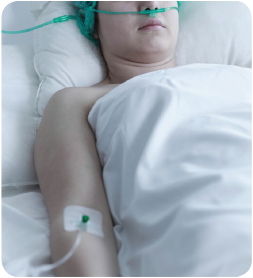 |
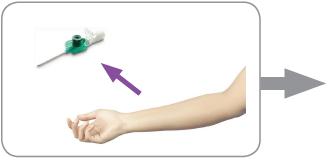 |
Sarah doesn’t understand why she needs the tubes and keeps trying to take them out. |
 |
It was agreed that it was in Sarah’s best interests to have the tubes kept in. |
 |
It was agreed that Sarah would need to wear special gloves that stopped her being able to take the tubes out. |
Everyone has thought about less restrictive options but agree that this is the best way of caring for her.
In situations like this staff should consider if a Deprivation Of Liberty is happening.
Deprivation of Liberty Safeguards.
These are rules to protect you if you are stopped from making a choice about your care.These rules make sure your rights are protected. |
 |
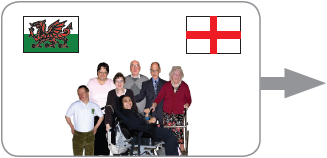 |
These rules are for people who are aged 18 or over who live in England or Wales. |
You will have a named person who can speak up for you.
 |
This can be a member of your family. The Council will find someone else to speak up for you if you do not have a family member who can help. |
The hospital will ask someone from the Council to check that the right decision has been made for you.
 |
Two people will visit you in hospital. They do not work for the hospital and one person will be a doctor. |
The two people who visit you in hospital will talk to your friends and family. They will also talk to the doctors and nurses.They will check you are being treated fairly. |
 |
They will check these things:
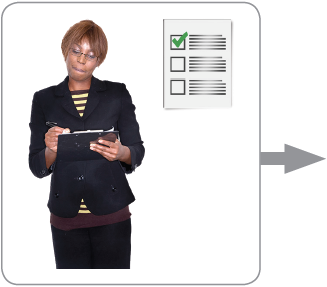 |
|
They will set a time limit on how long you can be stopped having a choice.
 |
Hospital staff will only be able to stop you having a choice for an agreed number of days. |
You should be given your freedom back as soon as possible. |
 |
What to do if you are unhappy.
You have the right to ask the Council to review your case if you are unhappy with the decision.People who support you can also ask for a review. |
 |
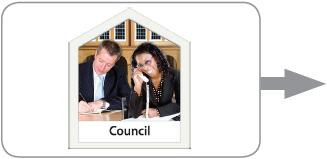 |
The Council will look at the decision and check if it is the right decision for you. |
You also have the right to ask a judge in the Court of Protection to look at your case. |
 |
 |
The judge can decide whether you have capacity to make the decision for yourself. |
 |
The judge can review your case if you disagree with the decisions that have been made. |
You will not usually have to pay for the Court costs. |
 |
Useful websites.
Hull University Teaching Hospitals NHS Trust website.
 |
Hull University Teaching Hospitals NHS Trust – Hull University Teaching Hospitals NHS Trust
|
For more detailed information about Deprivation of Liberty Safeguards go to:
 |
www.scie.org.uk/publications/ataglance/ataglance43.asp |
Credits.
This factsheet was adapted from the original version developed by the Learning Disability Liaison Service and the Mental Capacity Act Practice Development Project Lead at City Hospitals Sunderland, and funded by the Sunderland Clinical Commissioning Group.
Designed by The Clear Communication People Ltd. using Photosymbols and other stock photography. August 2016.
About Easy Read information.
Easy Read information using larger print, easy words and pictures to make information easier to understand. Easy read is a summary of the key points. Whilst it is useful to help people understand complex subjects it should not be relied upon solely in the process of supporting people to make decisions about their health care and treatment.

